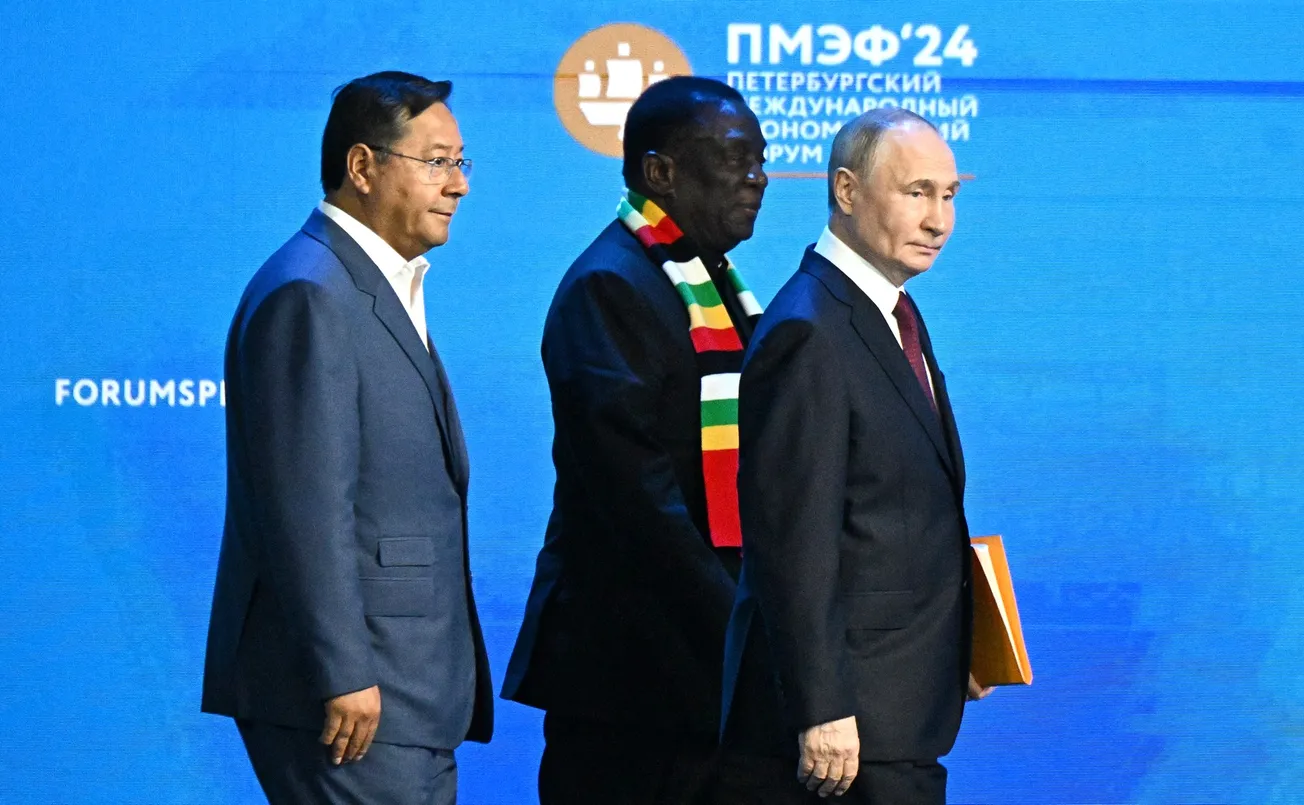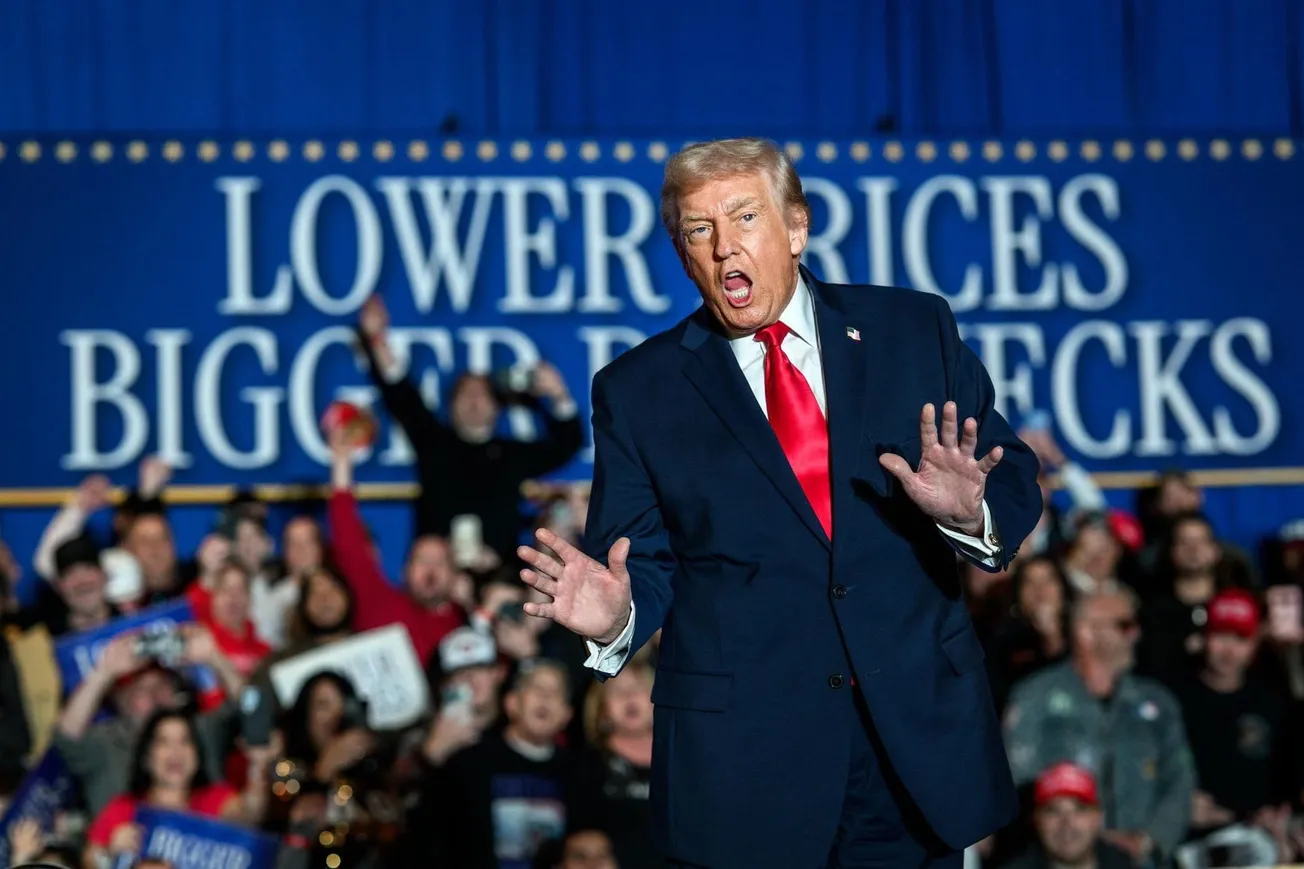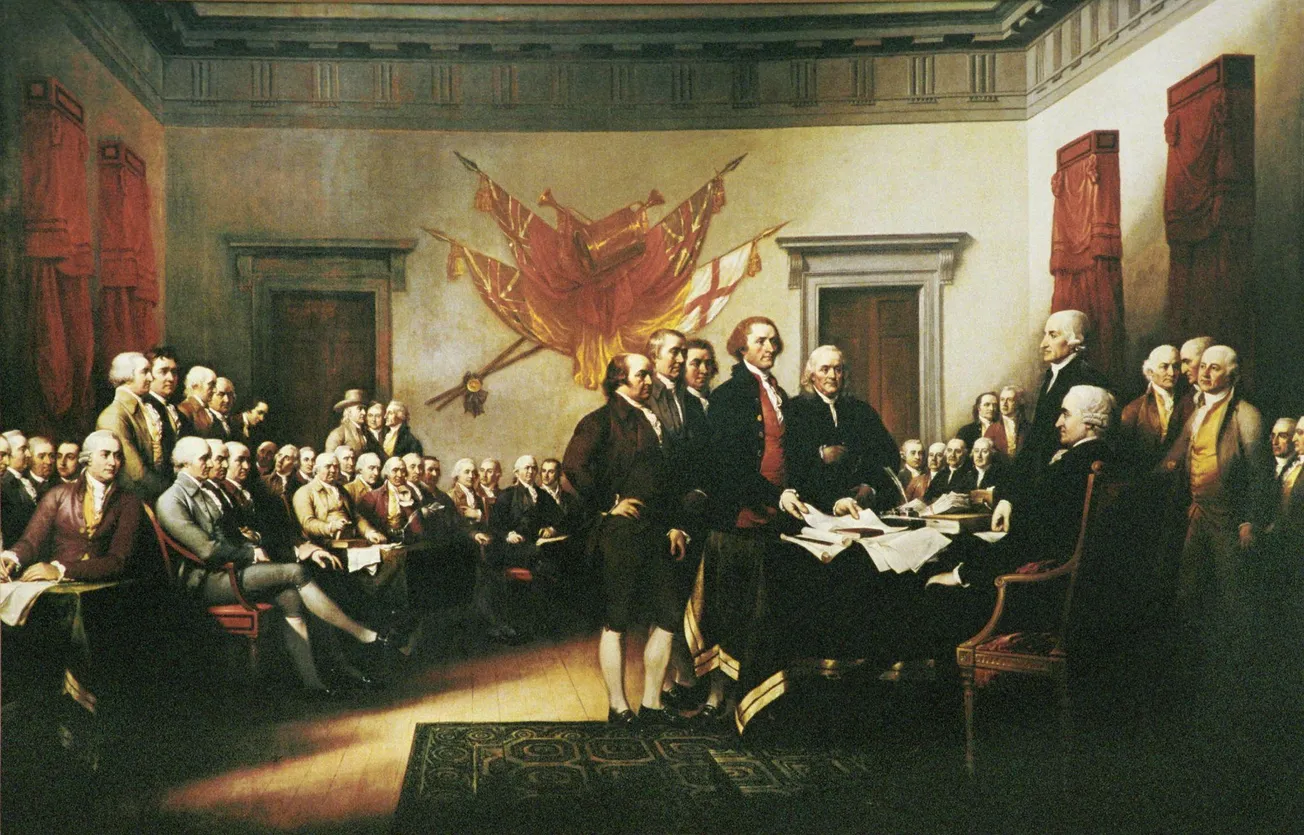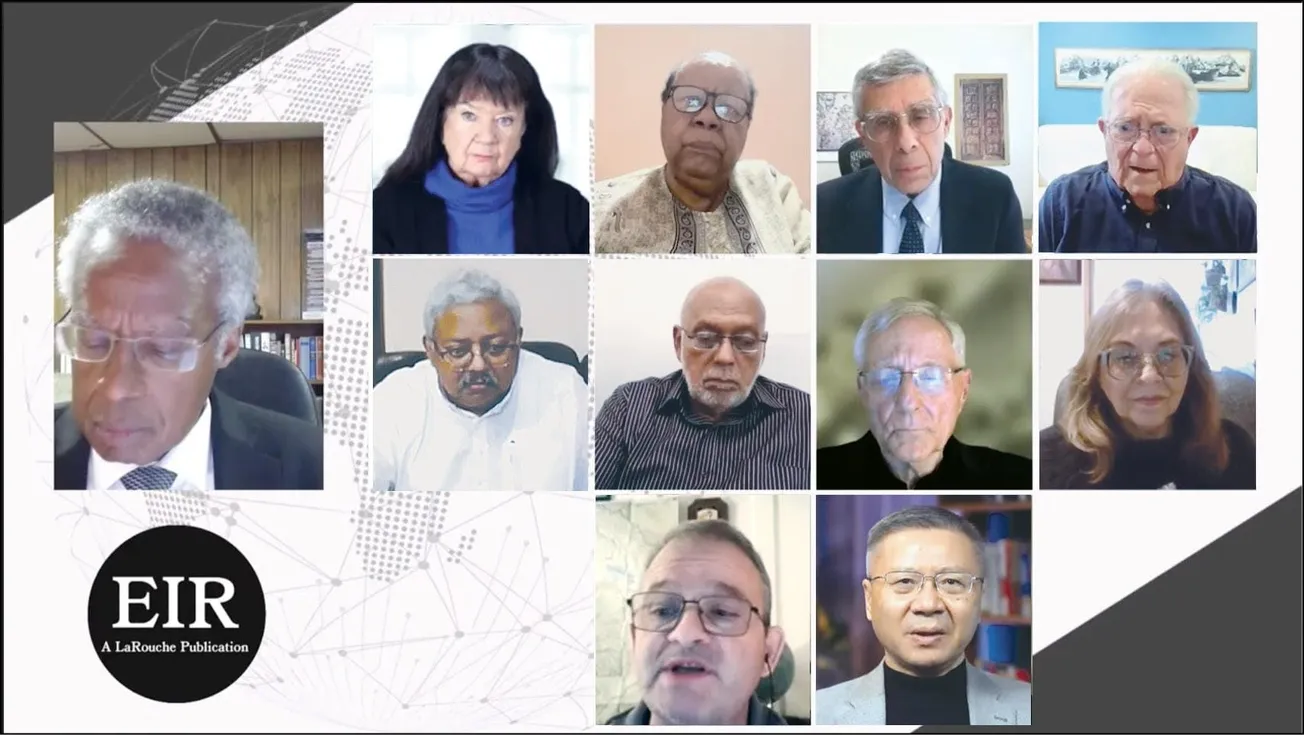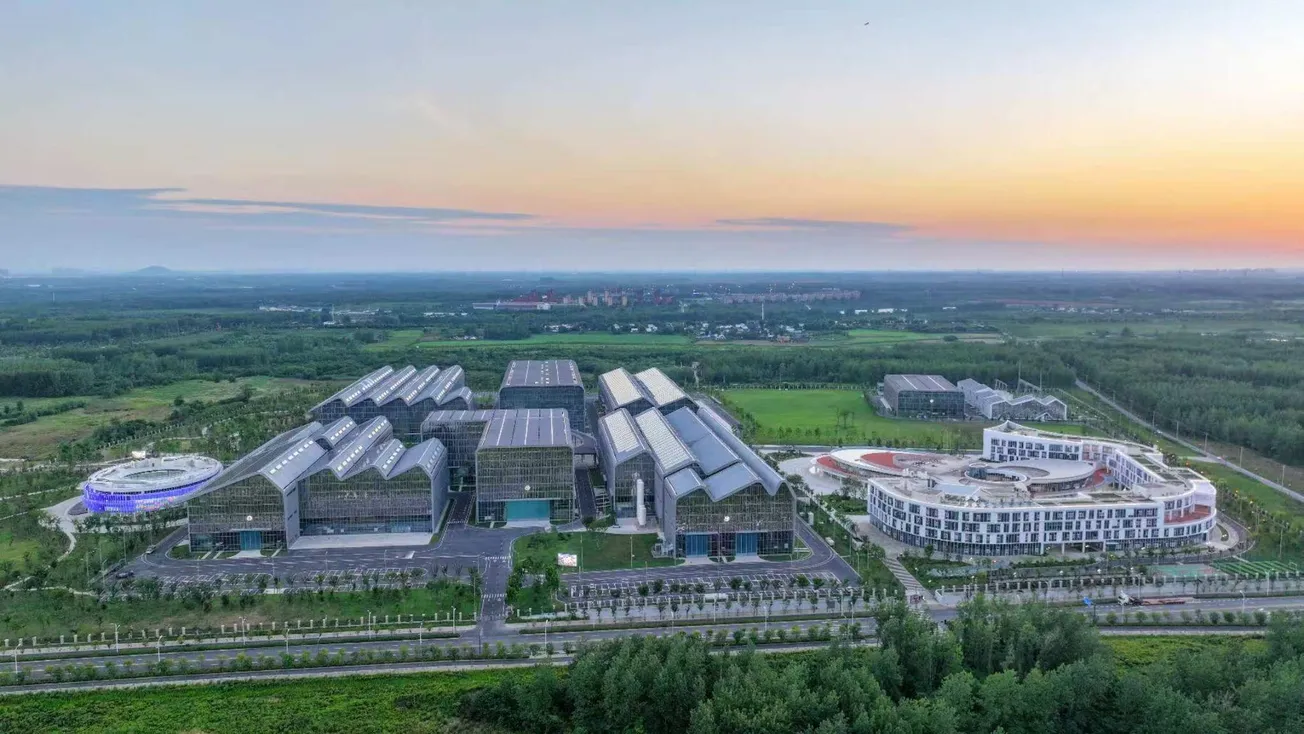Bolivian President Luis Arce Catacora was a special invited guest of Russian President Vladimir Putin at the June 5-7 St. Petersburg International Economic Forum (SPIEF), and addressed that group’s plenary session on June 7, sharing the podium with Putin and the other special guest, Zimbabwe’s President Emmerson Mnangagwa. In his speech before the plenary, Arce expressed confidence that joining the BRICS, which he hopes will happen at the Oct. 22 BRICS summit in Kazan, will provide his nation the opportunity to continue the industrialization process begun in 2006 but intensified after he became President in October 2020.
The economies of the BRICS, he said, have succeeded in “breaking the hegemony of the U.S., and they are the hope for the development of cooperation and complementarity among nations.” Joining the BRICS and working with its New Development Bank open up many opportunities to attract investment, he added. Moreover, he emphasized, the expanding use of national currencies as a means of payment in international transactions “is the indisputable basis for the building of a multipolar world.”
Arce provided details on how the Productive Economic Social Communitarian Model he helped design and apply in Bolivia beginning in 2006, has helped free his country from the neocolonial model in which it has been trapped for decades, if not centuries. It focuses on lifting people out of poverty and inequality by industrializing natural resources, of which Bolivia has a plentiful supply, promoting import substitution, and prioritizing social policies to provide healthcare, education, and housing to the Bolivian people.
One day earlier, on June 6, Arce had held a very positive state visit with President Putin, the first time the two leaders had met in person. Putin welcomed him warmly, meeting him first privately and then in an expanded format with other cabinet ministers and institutional representatives, to discuss the range of possibilities for expanding their bilateral cooperation. Arce later commented on the stunning number of meetings and cooperation agreements signed, including with state companies such as Rosneft; the state atomic energy agency, Rosatom; and the Uranium One company, which will help to industrialize Bolivia’s enormous lithium reserves. He later told RT that he had discussed with Putin the setting up of working groups to identify “as soon as possible” investments to be made by Russian companies in hydroelectric, hydrocarbons and “big productive projects.” He reported that this was the proposal he had made to President Putin and that the Russian leader “had kindly accepted.”

Putin stressed during his welcoming remarks to Arce that their bilateral relationship is “firmly based on mutual interests.” He pointed out “interesting areas of cooperation, including in the area of high technology,” mentioning that Rosatom is helping to build (with Bolivia’s Nuclear Energy Agency) the Nuclear Technology Research and Development Center in the city of El Alto in Bolivia.
Arce expressed his gratitude for Rosatom’s help in building this state-of-the-art center, which includes nuclear medicine, food irradiation, and radiopharmacology centers, as well as a research reactor. Prior to meeting with Putin, Arce met with Alexey Likhachev, Rosatom’s executive director, who has been personally involved in the construction of this marvelous nuclear energy R&D center in El Alto.
In his remarks to Putin during their initial meeting, Arce told the Russian leader, “We’re happy to be here with you in your native city and share our experiences and also our projects, our dreams, and perhaps by joining hands, we can make them become reality.”
Addendum: Attempted Military Coup Fails in Bolivia

Bolivia lived through dramatic moments June 26, when the commander-in-chief of the Army, Gen. Juan José Zúñiga, and Naval Commander Vice Admiral Juan Arnez threatened to overthrow the government of President Luis Arce Catacora. Zúñiga deployed troops to take over La Paz’s central Murillo Plaza, used a tank to break down the door of the presidential palace, and confronted President Arce. The general claimed he was acting to prevent former President Evo Morales from running for President in the 2025 elections, and would protect the country from the “elites” who, he said, governed only for “a few.”
The rebellion lasted only a few hours. Zúñiga and his coup-plotter allies were forced to stand down, and were arrested and charged with terrorism and subverting the “sovereignty and security of the state,” for which they will receive long jail terms. There was a significant international outpouring of support for Arce as well, especially from fellow Ibero-American heads of state. But, to be clear, these events had little to do with internal politics. Bolivia is a candidate to become a member of the BRICS, and President Arce has clearly stated his commitment to the pro-development worldview that the BRICS represent, as he elaborated during his June 7 speech at the St. Petersburg International Economic Forum.
As Bolivia’s neighbor, Brazilian President Lula da Silva has been especially supportive, and he and Arce enjoy a close working relationship. Lula will be traveling to Bolivia on July 9 to express his support for Arce and his democratic form of government, while also promoting South American economic integration and increasing connectivity through great infrastructure projects.
For the last two years, Wall Street and the City of London have subjected Bolivia to fierce financial warfare, demanding a currency devaluation and a change from Arce’s economic policy, which prioritizes industrial development, poverty reduction, and social welfare. The Bolivian President has often warned that domestic enemies and their foreign allies are seeking to destabilize his government. Removing him from office would be convenient for those Anglo-American forces that have also targeted Brazil, the BRICS leader in South America, while they prop up the pathetic Argentine President Javier Milei, who is deployed against Brazil and the BRICS momentum in Ibero-America.


